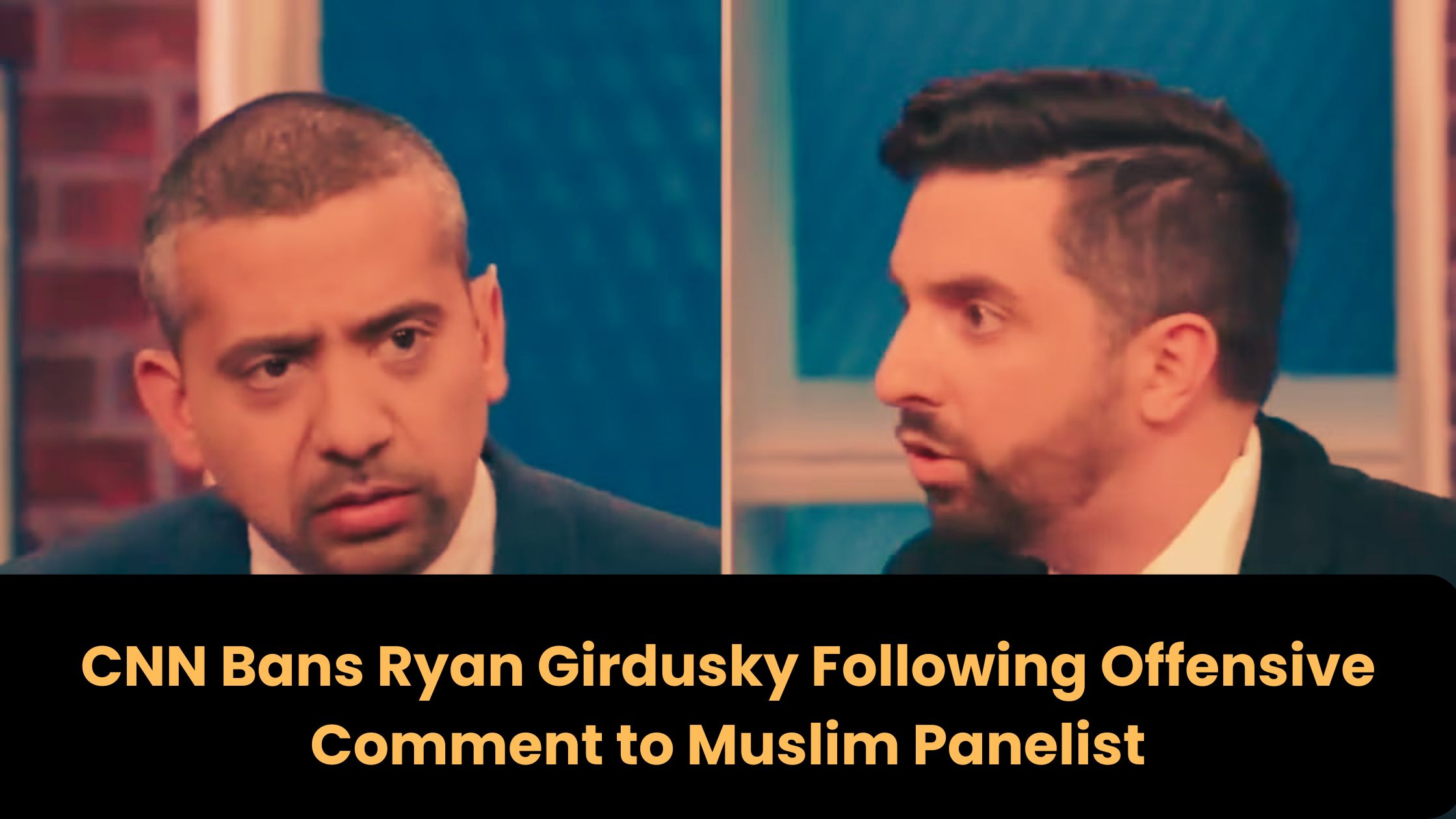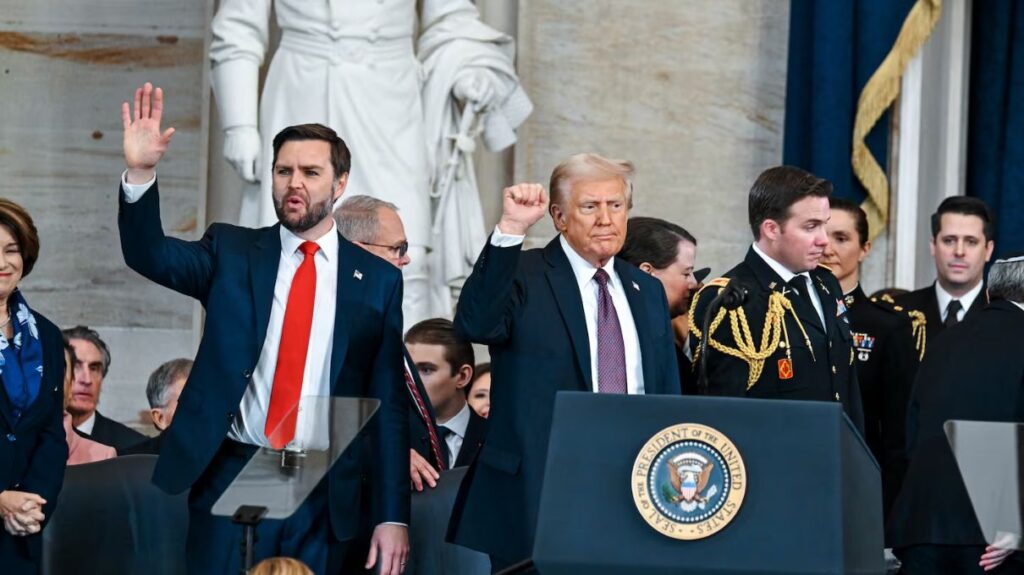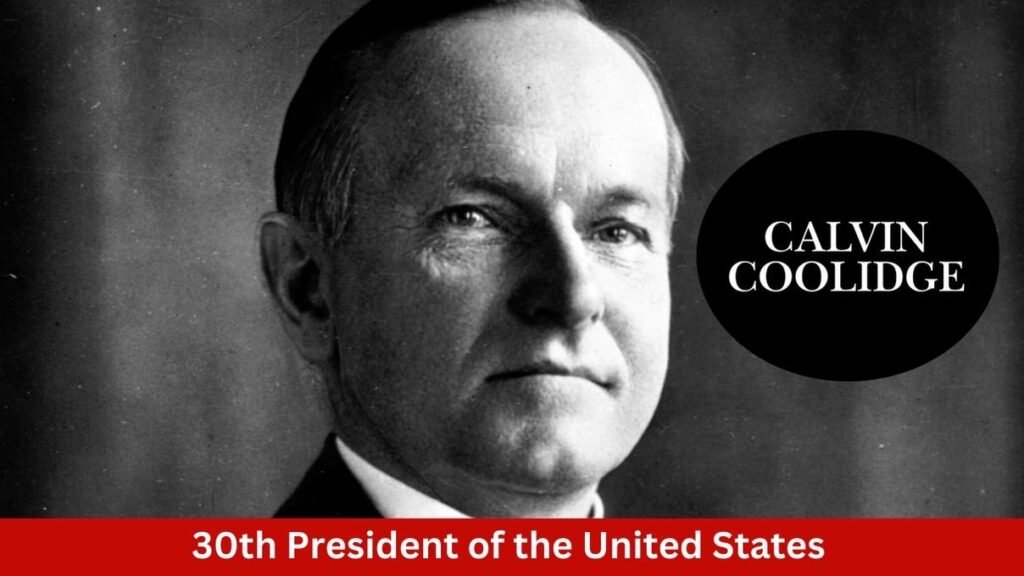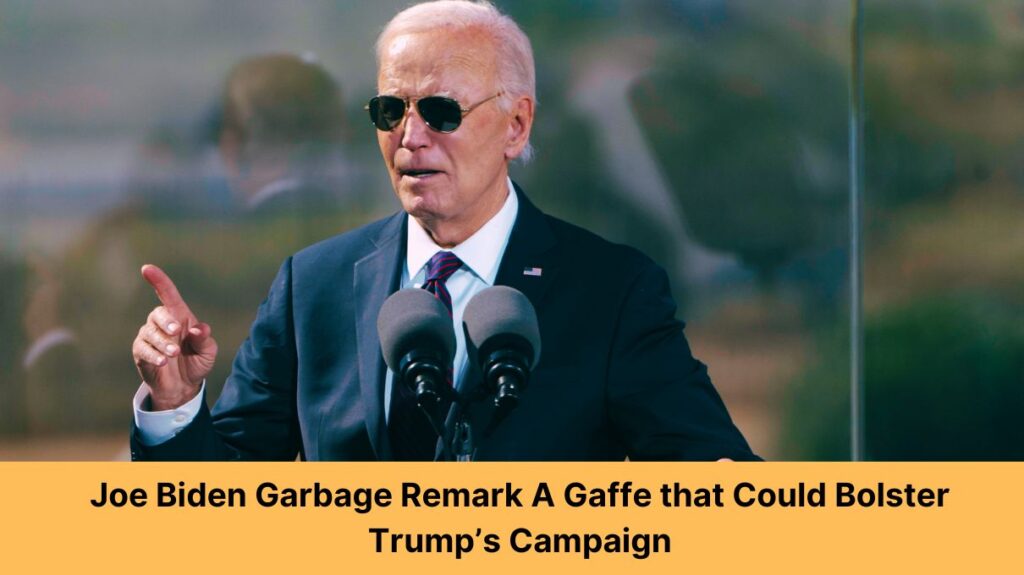In a recent incident on CNN, conservative writer Ryan Girdusky faced widespread backlash and a permanent ban after making a controversial comment about fellow panelist and journalist Mehdi Hasan. The exchange occurred during a CNN panel discussing topics including former President Donald Trump’s rally at Madison Square Garden and accusations that his campaign promotes divisive ideologies. During the conversation, Ryan Girdusky made a remark perceived as a personal and offensive statement toward Hasan, leading to significant reactions from both CNN and the public.
CNN Bans Ryan Girdusky Following Offensive Comment
CNN’s stance was clear. Shortly after the incident, the network issued a formal statement underscoring that it does not tolerate bigotry or racism on its platform. The statement read, “There is zero room for racism or bigotry at CNN or on our air,” adding that the network aims to foster discussions, even between people who strongly disagree, while maintaining respect for all parties. CNN confirmed that Ryan Girdusky would no longer be invited as a guest on any of its programs, marking a rare and definitive move from the network in response to an on-air incident.

Abby Phillip, the anchor moderating the panel, returned from a commercial break to address the incident, publicly apologizing to Hasan and the viewers. Phillip noted that there are “lines of civility” that CNN strives to uphold, even when facilitating conversations about deeply polarizing issues. She emphasized that, while CNN values a diversity of opinions, the network will not tolerate comments that demean, or attack guests based on their identity. CNN’s decision reflects its commitment to maintaining respect and fostering meaningful discussions across differing viewpoints, even on challenging topics like Middle East politics and the Israel-Palestine conflict.
By permanently removing Ryan Girdusky from its broadcasts, CNN aimed to set a clear example about its standards of civility and respect, underscoring that discourse on complex issues can—and should—remain respectful. The network’s strong response also shows its intent to provide a platform where different perspectives are welcome but must be expressed without resorting to inflammatory or prejudiced statements.
Ryan Girdusky : A Heated Exchange Over Sensitive Topics
The panel discussion on CNN began as a debate on sensitive issues surrounding Trump’s recent rally and accusations of his campaign spreading divisive ideologies. As the conversation unfolded, journalist Mehdi Hasan, a vocal advocate for Palestinian rights and editor-in-chief of Zeteo News, discussed the frequent accusations of anti-Semitism he faces due to his stance on the Palestinian cause. Hasan explained that, as a supporter of Palestinian rights, he is often subject to unfair attacks by those who equate his stance with anti-Semitic sentiments.
At this point, Ryan Girdusky interjected with a comment referencing the recent detonation of pagers and walkie-talkies that reportedly killed members of Hezbollah in Lebanon. Ryan Girdusky remarked, “Yeah, well, I hope your beeper doesn’t go off,” a statement interpreted as suggesting that Hasan, as a supporter of Palestinian rights, was aligned with groups labeled as terror organizations. The comment alluded to an incident where pagers and walkie-talkies exploded, an event Lebanese officials attribute to Israel, though Israel has denied involvement.
Hasan immediately responded to Ryan Girdusky comment, asking, “Did you just say I should die?” This led to a charged exchange, as Hasan accused Girdusky of making a racially charged, violent implication. Girdusky, visibly taken aback by the reaction, attempted to backtrack, claiming he misunderstood Hasan’s statement, thinking Hasan had expressed support for Hamas rather than Palestinian rights in general. Hasan challenged this assertion, pushing Girdusky to acknowledge his comment fully.
The exchange underscored the tensions that often arise in discussions involving Middle Eastern politics and the challenges of navigating such conversations without escalating to personal attacks. The situation reflects the high emotions often associated with topics like the Israel-Palestine conflict, where strong personal and political convictions can lead to heated exchanges that cross lines of respect and civility. CNN’s swift action to address the incident emphasized the need for clear communication and responsibility, especially when discussing contentious global issues.
CNN’s Stance on Bigotry and Removal of Girdusky
CNN’s immediate response to the incident between Ryan Girdusky and Hasan demonstrated its firm commitment to preventing bigotry on its platform. After Girdusky’s comments were aired, the network took decisive action, issuing a formal statement to clarify its policies on civility and respect. In its statement, CNN underscored its dedication to fostering an environment of respect where productive and thoughtful discussions can take place. The network acknowledged the importance of bringing together individuals with diverse viewpoints to engage on significant issues, even when those perspectives fundamentally differ. However, it emphasized that personal attacks or inflammatory remarks would not be tolerated.
CNN anchor Abby Phillip, who moderated the panel, addressed the controversy live on air, explaining that Ryan Girdusky comment had crossed a line. Phillip apologized to Hasan and CNN’s viewers, explaining that CNN’s platform is not a place for personal attacks or expressions of bigotry. She highlighted that while CNN encourages open debates, there are standards of conduct that participants are expected to follow. Phillip’s comments pointed to CNN’s dedication to ensuring a respectful environment, regardless of the intensity of the subject being discussed.

In addition to the on-air apology, CNN’s decision to ban Ryan Girdusky from future appearances underscored the network’s commitment to these standards. By removing Girdusky permanently, CNN conveyed that it has a zero-tolerance policy for remarks that appear racially charged or that demean panelists based on their identity. This decision has resonated with many viewers and public figures who support CNN’s move to maintain respectful discourse, especially on issues as complex and divisive as the Israel-Palestine conflict.
CNN’s response to the incident serves as a reminder of the responsibility’s media organizations have in fostering respectful dialogue. Given the network’s large audience, maintaining a standard of civility on air helps promote healthier conversations around sensitive issues, even as debates grow heated. CNN’s stance highlights the importance of preserving the integrity of media discussions, showing a strong commitment to its audience and the participants it invites to engage.
Broader Reactions and Responses
The incident and CNN’s reaction have sparked broader discussions on social media and beyond, drawing responses from public figures and the public. Congresswoman Rashida Tlaib, a Palestinian American and vocal supporter of Palestinian rights, publicly condemned Ryan Girdusky comments, criticizing CNN for allowing such remarks to air. Tlaib highlighted the issue of media bias, expressing concern about the normalization of anti-Arab, anti-Muslim, and anti-Palestinian rhetoric in mainstream media. This sentiment reflects a broader conversation around how such incidents can impact public perceptions of Arab and Muslim communities, especially when it involves media personalities with large audiences.
Hasan himself took to social media, reposting CNN’s condemnation of Ryan Girdusky comments, emphasizing the importance of addressing such issues. Many saw the incident as indicative of the challenges faced by public figures who support Palestinian rights and are often met with backlash that can veer into stereotyping or accusations of association with extremist groups. The incident also highlights the complex role media organizations play in balancing free speech with respectful and inclusive dialogue, particularly on topics as emotionally charged as Middle Eastern politics.
CNN’s response aligns with a broader commitment to providing a safe and respectful space for discussions that reflect diverse perspectives. Media networks, with their vast influence, have a responsibility to uphold standards that prevent the escalation of harmful stereotypes. The network’s decision to permanently remove Ryan Girdusky underscores the importance of boundaries in civil discourse and the responsibility media outlets have to model respectful engagement, even on polarizing topics.
CNN’s Role and the Media’s Responsibility in Civil Discourse
The network’s decision to ban Ryan Girdusky permanently from its broadcasts sends a strong message about the standards CNN seeks to uphold on its platform. With polarizing issues like the Israel-Palestine conflict, discussions often bring intense emotions and strong opinions. However, CNN’s firm stance reiterates the network’s responsibility to maintain an environment where all perspectives can be voiced without devolving into attacks or disrespect.
This incident serves as a reminder for media organizations about the importance of clear guidelines and moderation, particularly during discussions on complex, divisive issues.




